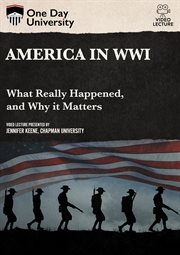Review by Kirkus Book Review
New inroads into an area of literary history partly probed by Bernard Bergonzi's Heroes' Twilight (1966). If you want an encyclopedic survey of WW I in the annals of English literature, you'll have to wait; Fussell (best known as an Augustan specialist) adopts a selective approach that deliberately leaves large areas in shadow. His chief focus is the experience of combat itself--the stinking hell of the trenches--as an event which necessitated a jolting transformation of past literary concerns and methods. The gap between patriotic expectation and bloody reality dealt the national consciousness a shock that is still being felt. The literary repercussions were muted and delayed by the fact that the major talents of the age either escaped first-hand combat or failed to survive it. Only lesser figures lived to record the obscenities they had undergone, and it took the post-WW II American novelists (Mailer, Heller, Pynchon) to consummate a tradition founded in the murderous absurdities of the Somme and Passchendaele. A promising thesis, pursued with much feeling, but the method is rather spotty. Fussell considers only Sassoon's George Sherston series and does so in terms of the ""us-them"" dichotomy of the combat situation and its mental residue. For David Jones there is ""myth"" (here, the ritualizing patterns which the mind tends to impose on all experience under unbearable stress); for Robert Graves, ""theater"" (self-conscious participation in ""absurd costume drama""); for Wilfred Owen, the ""homoerotic tradition."" Curiously, Fussell's tracing of literary sources and influences often seems a jarring and schoolboyish trivialization of the material; his close readings frequently make heavy weather of rather glib points. His approach leaves out a great deal (e.g., the literature of pacifism; and it's a pity that he includes a few German authors but not Celine). Still, the subject is immensely important, and Fussell--best when examining the memoirs of half-anonymous survivors--opens up challenging lines of inquiry into what he calls, in Northrop Frye's words, a piece of ""our own buried life. Copyright ©Kirkus Reviews, used with permission.
Copyright (c) Kirkus Reviews, used with permission.

